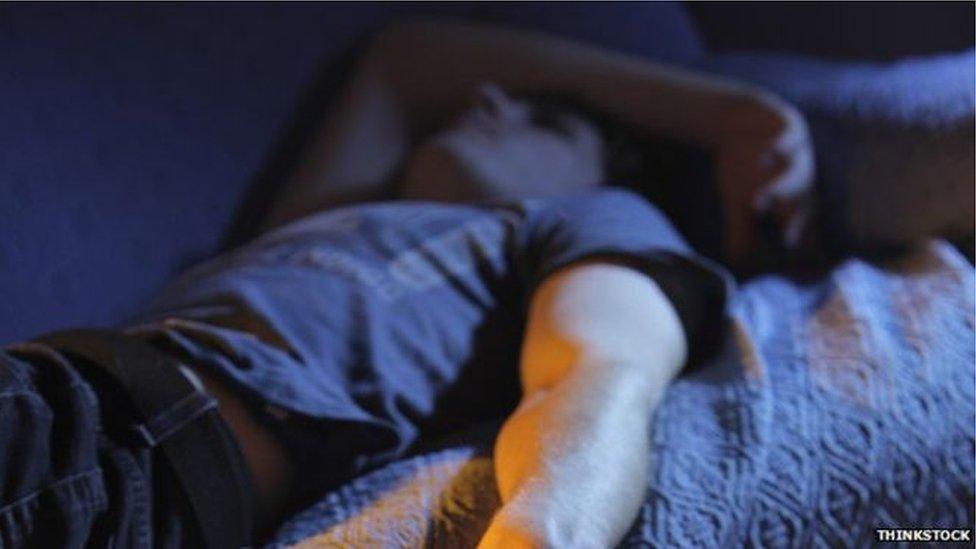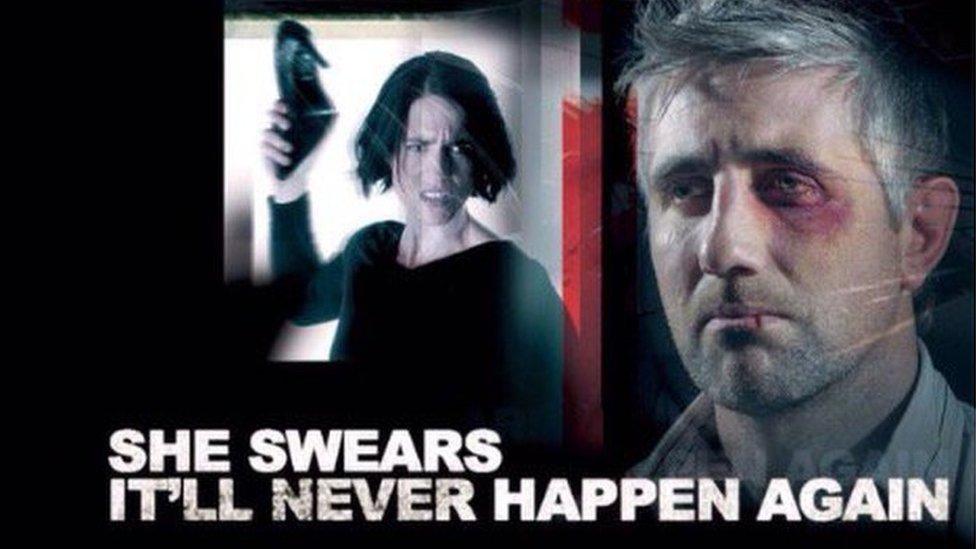Domestic abuse: Men 'need more help', victims' organisation says
- Published

Men who suffer domestic abuse often feel like they have no-where to go
An organisation that provides help for male victims of domestic abuse has seen an increase in people coming to them for help.
The Men's Advisory Project said it supported 536 clients in 2015 compared to 294 in 2013.
But while victims often suffer similar hardship, it said the services available for men in Northern Ireland are less extensive than for women.
One man who knows how difficult it can be to get help is Paul.
Paul, whose name has been changed to protect his identity, walked away from his 25-year marriage after suffering physical, emotional and psychological abuse.
"My wife and I had only been together two years when the trouble started," he told the BBC.
'Kicking, slapping, shoving'
"She fell pregnant and made it clear that if we didn't get married and move in together I wouldn't see my child.
"She would say things to me like: 'You don't want to be one of those men who have no relationship with their children.'

A PSNI poster campaign was launched to highlight male victims of domestic violence
"Then the kicking, slapping and shoving started, and it escalated from there until she had worn me down to believe I deserved everything I got."
Paul's wife repeatedly attacked him and he said she would do everything she could to make him feel "sub-human".
He said: "I had to keep my clothes, which were torn and dirty, in the car or the shed because I wasn't allowed to keep them in the house with her things.
"I also wasn't allowed to have the heating on, if I was the only person in the house.
"My relationship with my children was seriously affected as they were told time and again that everything was my fault, they were even left 'in charge' of me if my wife went out of the house."
As well as the violence, which included Paul's wife trying to strangle him with an extension cord, there was financial abuse.
He said: "Everything I had was tied up in bills - the mortgage, the electricity and the heating all came out of my wage so that I had nothing left to spend myself."
But Paul, who is now 50, said the worst part of the abuse was being afraid to go home.
After decades of suffering in silence, he finally decided to leave, but said he had nowhere to turn.
'Lives could be saved'
Unaware that he was a victim of domestic violence, he had not contacted the police about his wife.
"I lived in my car for a while because I had no money of my own and couldn't access housing because I had a full-time job," he said.
"No one understood that my wife was still controlling me."
Finally, Paul was able to access the services provided by the Men's Advisory Project, which receives funding from the Department of Health, after his sister heard about the organisation.
But even after Paul realised he had been a victim, he said there was little help available to him.
"There are no beds in Northern Ireland or the Republic of Ireland for male victims of domestic abuse," he said.
"The message from the police is that anybody can be a victim, but I believe that not everyone can get the help they need."
The most recent figures from the Police Service of Northern Ireland (PSNI) show that 3,104 men were victims of domestic violence between August 2014 and 2015.
James Knox, the project manager at the Men's Advisory Project, said: "While the PSNI's gender-neutral poster campaign is a step in the right direction, there is more that could be done.
"If there was more help available for male victims of domestic abuse it would save lives."